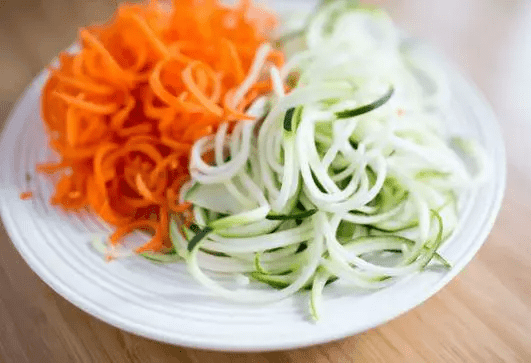Diet and Lifestyle for hepatitis B
Liver disease can be inherited or caused by damage to the liver such as from infection, alcohol use and obesity. Over time, damage to the liver causes scarring (cirrhosis), which can lead to life-threatening liver failure.
Most people who drink alcohol do not suffer damage to the liver. However, years of excessive alcohol consumption can increase the chance of getting alcohol-related liver disease.
The amount of alcohol that causes liver damage differs from person to person. Research has shown that on average, consuming more than two drinks per day in women and three drinks per day in men is more likely to have harmful effects on the liver.
Drinking in moderation is an important part of looking after your liver.

Five reasons to stay active
Regular exercise has plenty of health benefits, no matter what age, size or shape you are. For people who have or who are at risk of liver disease, it’s an important part of maintaining a healthy lifestyle.
Here are five reasons why exercise is good for you.
It keeps your weight down
Physical activity helps you maintain weight loss and avoid gaining too much. The more intense the activity, the more calories you burn. If you’re short on time, even a few minutes’ walking is good. Try taking the stairs instead of the lift, or walk with a friend instead of catching up over coffee.
It helps you stay healthy
Want to show your liver some love and avoid making it work overtime? Exercise boosts good cholesterol and decreases unhealthy triglycerides. It helps prevent or manage many health issues, such as diabetes, fatty liver disease and anxiety.
It’ll help put you in a good mood
What better way to cheer yourself up or de-stress than with a brisk walk or workout? Exercise fires up chemicals in the brain such as dopamine and serotonin, which regulate mood. So it’ll leave you feeling happier, more confident and relaxed, and less anxious.
It raises your energy levels
Regular exercise sends oxygen and nutrients to your tissues and helps your heart and lungs work more efficiently, so you’ll have more energy to face the day with.
It can help you sleep better
Regular physical activity can help you fall asleep faster, get better sleep and deepen your sleep. But it’s a good idea not to exercise too close to bedtime or you may have too much energy to sleep easily.
* If you’re new to exercise, are pregnant or have any health issues or concerns, please check with your doctor before beginning any fitness programme.

Whats the best diet for someone with hepatitis B?
For hepatitis B, doctors recommend eating a balanced diet with plenty of carbohydrates, fruits, and vegetables to help the liver function properly. Everything a person eats or drinks passes through the liver. This organ filters the blood, removing nutrients and vitamins and metabolising harmful substances.
Doctors know that when people with hepatitis B follow a nutritious, well-balanced diet with whole grains and lean proteins, their liver function improves. Highly processed foods, fats, red meat, and sugary foods make the liver work harder, while fruit, vegetables, and whole grains support its function.
When a person’s liver is damaged, they may not absorb nutrients effectively. Researchers know that many are experiencing malnutrition. People who worked with a nutritionist to change their diets experienced an improvement in their liver function and a boost in nutrient levels.
Changes to a diet will not cure hepatitis B but increase the likelihood of the person’s liver recovering completely. Those who continue these eating habits reduce the amount of stress on their liver.
Foods to eat with hepatitis B
People with hepatitis B can enjoy many foods, including lean meats, fish, whole grains, vegetables, and fruit. And its recommended to eat smaller but more frequent meals throughout the day.
Foods to eat more of include:
all types of vegetables, but increasing quantities of broccoli, cabbage, cauliflower, collard greens, and other cruciferous vegetables
lean proteins, including fish, meat, and eggs
nuts and seeds
whole grains and cereals, including brown rice, quinoa, barley, beans, lentils, and oatmeal
fruit
low-fat dairy items, including cottage cheese and skim milk
fortified soy products, including tofu
vegetable oils, including olive and rice bran or canola
The researchers add that people can eat the vegetables raw or cooked and that frozen, tinned, and fresh varieties all help.
They advise people to wash fresh fruit and vegetables to remove any preservatives or insecticides that might be on the skin. These chemicals place a strain on the liver.
Most people need to increase their intake of complex carbohydrates and choose more nutrient-dense, whole-grain varieties, including whole-wheat bread and pasta.
Foods to avoid with hepatitis B
Cutting back on certain foods can help the liver function. Foods to reduce or eliminate from the diet include:
fast food or takeaway food
fried foods, including potato chips
full fat dairy products, including cream and butter
saturated fats
highly processed foods, including hot dogs, cured meats such as ham, store-bought salad dressings, and sweetened breakfast cereals
salty foods and salt
rich sauces and relishes
sugary foods and drinks, including sodas, cookies, and many packaged baked goods
raw or undercooked shellfish
Highly processed foods usually contain a lot of fat, salt, and sugar and make a person’s liver work hard.
Other lifestyle tips
People with hepatitis B also benefit from simple lifestyle changes.
quitting smoking, if applicable
keeping hydrated by drinking lots of water
avoiding or cutting back on alcohol
achieving and maintaining a moderate weight
being physically active
stopping any vitamin or herbal supplements that are harsh on the liver
They also recommend checking with a pharmacist or doctor before taking any over-the-counter medications.


